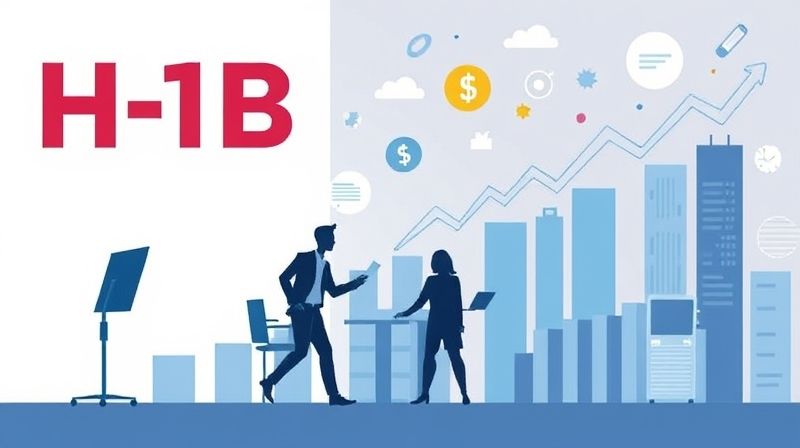H-1B fee hike: Impact on Key Players

H-1B fee hike – Article illustration 1
The impact was widespread, with most companies within the Nifty IT index experiencing losses. While Oracle bucked the trend, many prominent players suffered significant drops. Mphasis, for example, saw a substantial 4.7% decline, while HCL Technologies experienced a 1.7% fall from the previous day’s closing price. This demonstrates the significant reliance many Indian IT firms have on the H-1B visa program for staffing projects in the US.
A Perfect Storm for the Indian IT Sector

H-1B fee hike – Article illustration 2
This downturn comes at a particularly challenging time for the Indian IT sector. The industry has already been grappling with several headwinds, including lower-than-expected earnings, the disruptive potential of artificial intelligence, and delays in salary increases. The H-1B fee hike adds another layer of complexity, potentially impacting profitability and future growth prospects.
The H-1B Visa and its Significance
The H-1B visa is a crucial pathway for skilled workers, including many Indian IT professionals, to work in the United States. Indian IT companies heavily utilize this program to provide services to their US clients. A significant increase in fees directly increases the cost of employing these workers, potentially squeezing profit margins and making it more challenging to compete for contracts.
Potential Long-Term Consequences
The long-term consequences of this fee hike remain uncertain, but several potential scenarios are cause for concern. Increased costs could lead to companies seeking alternative staffing solutions, potentially impacting revenue streams and the overall size of the workforce. Furthermore, it could influence the competitiveness of Indian IT firms against their global counterparts, particularly those based in countries with less stringent visa requirements.
Navigating the Challenges Ahead
The Indian IT sector faces a critical juncture. The combined impact of lower earnings, AI disruption, delayed pay hikes, and now the H-1B fee increase presents a formidable challenge. Companies will need to adapt their strategies to navigate these headwinds, potentially through diversification, increased automation, and a focus on higher-value services that are less reliant on large-scale H-1B visa-dependent deployments. The coming months will be crucial in determining how the sector responds and adapts to this new reality. The market’s reaction to the H-1B fee hike underscores the significant dependence of the Indian IT sector on the US market and the need for proactive strategies to mitigate the potential long-term impact. The future remains uncertain, but one thing is clear: the H-1B fee hike is a significant event with potentially far-reaching consequences.


